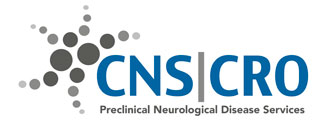Jim Day
Topics :
UPEI , Neurodyn , National Research Council Institute for Nutrisciences
Neurodyn Inc., a biotechnology company, is finding a fruitful home on campus at UPEI. With the help of $2.3 million in federal funding from ACOA, Neurodyn set up lab facilities in early 2007 at the National Research Council Institute for Nutrisciences and Health. Neurodyn CEO Ken Cawkell says the company has grown “from basically an idea and two guys” into seven researchers, including five Phds, in the space of about three and a half years.
Now, a subsidiary of the company called CNS Contract Research Corporation (CNS|CRO) is eager to blossom in large part thanks to an agreement signed with UPEI Thursday.
The university agreed to license four pieces of medical research technologies to CNS|CRO to be used in drug development and drug testing for stroke, epilepsy and schizophrenia.
Cawkell sees the agreement opening the door to potential lucrative contracts with pharmaceutical companies looking to contract CNS|CRO’s preclinical neurological disease services.
“There is a huge marketplace,” he said. “I can tell you that the marketplace for some of these quote diseases or indications is in the billions of dollars. So they’re all areas that large pharmaceutical companies are all extremely interested in.’’
He believes his company has superior testing models — models that have been exclusively licensed to the CNS|CRO.
“If you want to use these models,” he stressed, “you need to come to this university — you need to come to our CRO in order to test your drugs.’”
Cawkell also foresees CNS|CRO attracting research money as a result of the licence agreement with UPEI.
“The reason for (anticipating) the research money is that because we believe that we have leading edge models — we can actually do our own research,” he said. “Very, very important from our point of view in doing our discovery research here based in P.E.I., based at the university here.’’
Three Oaks Innovations, Inc. — UPEI’s independent spin-off company with the mandate of helping university-created technologies and innovations making their way into business application — facilitated the agreement signed Thursday.
“Today is about technology developed by researchers at UPEI making a difference in the real world,” said Katherine Schultz, vice-president, research and development at UPEI. “Today, we celebrate a major contribution that that research will play in the development of new tools for the fight against stroke, epilepsy and schizophrenia.’’
Schultz described the four members of the research team that developed the technologies as an eclectic bunch representing three different departments across UPEI and the Atlantic Veterinary College.
She says the research team of Andy Tasker, Tracy Doucette, Catherine Ryan and Melissa Perry has been able to secure competitive research funding from a number of sources.
